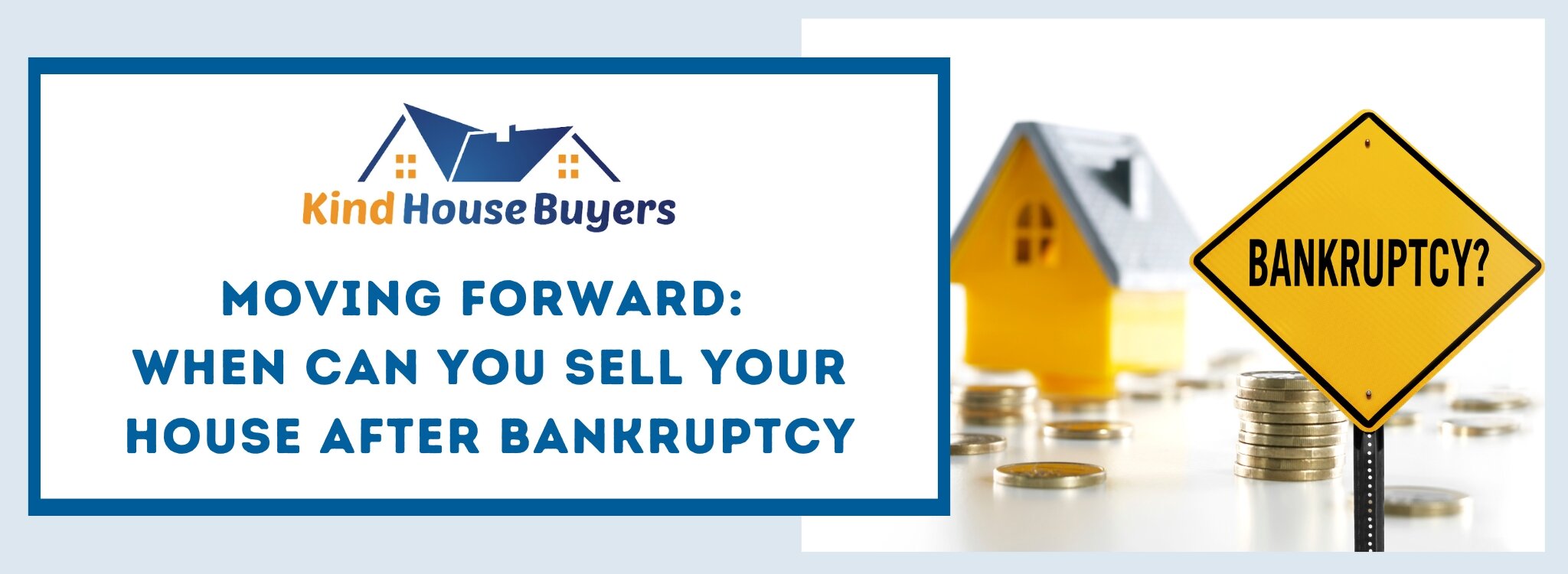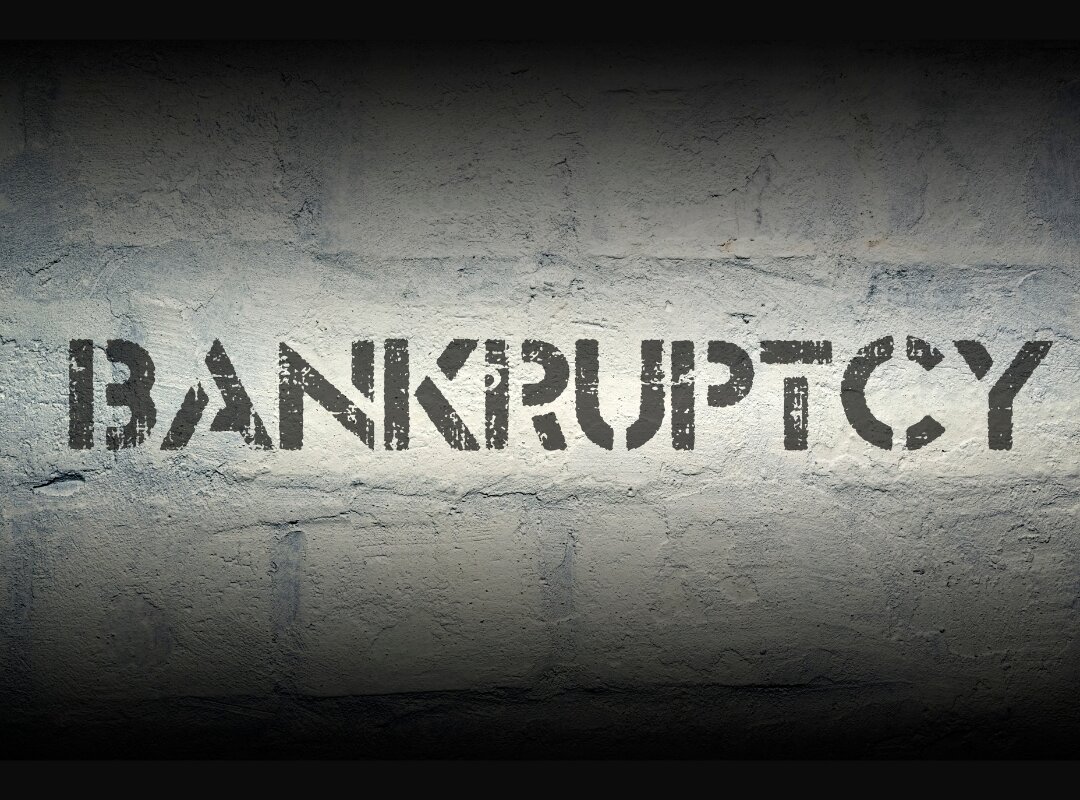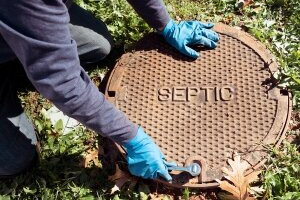
Selling your house after Chapter 7
Imagine you’re living in your dream home, raising a family, and trying to make it in this world, but then something terrible suddenly happens, say, you lose your job or a family member falls ill. Bills start piling up, mortgage payments aren’t being made, and you’re feeling lost and overwhelmed, left with no other option but to declare bankruptcy.
Possibly nothing else strikes fear in the hearts of many more than the prospect of staring down the barrel of bankruptcy. sgfd
Things may look bleak, but you first need to know that bankruptcy is a legal procedure that will help you regain financial footing by wiping away debt and giving you a fresh start. You must also know that you’re not alone in this. In 2023, there are nearly 500,000 bankruptcy filings in the United States, with half being Chapter 7 filings.
In this article, we’ll walk you through the bankruptcy process so you can keep a straight head while navigating this challenging experience.
Why file for a Chapter 7 bankruptcy?

Under the Bankruptcy Code, there are three types of bankruptcy filings: chapter 7, which liquidates assets to pay off unsecured debt; chapter 11, which is used by businesses to reorganize its finances and stay afloat; and, Chapter 13, which is used by people with regular income to develop a payment plan for their outstanding debts within a certain time period.
With a chapter 7, you will be able to discharge most of your debts, which means you are no longer obliged to pay them, although there are exceptions. Debts that you won’t be able to discharge include child support payments, alimony, student loans, income taxes, federal tax liens, and criminal fines.
A Chapter 7 filing is also known as a straight bankruptcy because there is a direct exchange in which the assets are required to be sold off and the proceeds go towards debt repayment.
Will I lose all my assets if I file for Chapter 7?
All of your assets become part of the bankruptcy estate when you file for bankruptcy. But don’t worry, this doesn’t automatically mean that you automatically lose everything. Remember, the goal of a bankruptcy is to provide you with debt relief, not wipe you out.
Generally, you get to keep your clothing, a few furniture, retirement accounts, an inexpensive car, and a portion of your home equity, or even your home itself through something that is called…
The homestead exemption

The homestead exemption protects a home from creditors during a bankruptcy, providing you a physical shelter and a financial buffer. Take note that it only applies to property serving as your primary residence, which means you need to be living in it to qualify.
The federal exemption is $27,900 in equity if filing alone, and $55,800 if filing jointly, but most states exempt larger amounts, such as in Washington, where you could protect over $500,000 but certain conditions must be met. On the other hand, New Jersey and Pennsylvania don’t have any homestead protection but you can use the federal rate.
Furthermore, in some states the exemption applies automatically in your bankruptcy, while in others, you are required to file a claim for it. So before declaring bankruptcy, you have to be 100% sure that you are protected.
However, it’s important to know that the exemption only protects your home from unsecured creditors. It doesn’t stop foreclosure proceedings, such as those initiated by the bank that holds the mortgage, since the house itself serves as the collateral for the loan.
The bankruptcy process
Declaring bankruptcy is a very serious decision and requires some planning so the process can be made as painless as possible.
As bankruptcy is a legal remedy, it’s best to consult a bankruptcy attorney for advice before everything else. They can help you analyze your debts, evaluate your assets, file the proper paperwork, and guide you in getting the most out of selling your home after the dust settles. If you’re concerned about the lawyer fees, you can always check if you qualify for free legal services.
- The process officially begins once you file a petition at the local bankruptcy court.
- The court will appoint a trustee to oversee your case, and an automatic stay will be placed on your assets.
- The stay will prevent creditors from going after your properties, and it will also block collection agencies from harassing you in this already difficult time.
- Next, the trustee will review your assets, sell off non-exempt property, and distribute the proceeds among your creditors. Non-exempt property includes, but is not limited to, vacation homes, rental properties, extra cars, art collection, jewelry collection, cash, bank accounts, stocks, and other investments.
If the total value of your assets does not exceed the homestead exemption, mortgage loan, sale cost, and the trustee’s commission all together, the trustee will not proceed with the sale. In other words, your debts far exceed your equity, and you’re shielded from any liquidation action.
Whatever the case, the process ends with your debts discharged and the trustee will file a “No Distribution Report”, leaving you free to start over financially.
What happens after a bankruptcy discharge?

Immediately after your discharge, you will receive official paperwork, and the bankruptcy court will close your case. The status of your home ownership is no longer in limbo, and should you decide to sell your property, the bankruptcy trustee will no longer have any claim over the sale proceeds.
Getting a discharge also bars you from filing again for eight years, a policy in place to prevent abuse of this legal remedy.
Options in selling the house after a bankruptcy discharge
After a bankruptcy discharge, your other financial obligations, such as mortgage payments, don’t just magically disappear. Only unsecured debts such as medical bills, credit card debts, and personal loans are erased. If you fail to make your payments, the lender may initiate foreclosure proceedings, potentially putting you in a worse position.
You can get ahead of that by selling the property yourself, and here are two ways to go about it:
Option #1: Sell it short
Let’s face it, even though your debts have been forgiven, you’re still in a pinch, which means you may be unable to keep up with your payments.
To avoid a foreclosure, you can arrange a short sale with your lender, selling the property for less than what is owed. When you go with this option, you will get zero cash from the sale, and the lender can either write off the rest of your balance or pursue a deficiency judgment from the courts against you to make up the difference. In some states, the law requires the lender to forgive the difference. Unfortunately, if you live in a state with no such requirement, and the lender goes with the latter option, they can garnish your future wages or seize other property until the balance is paid in full.
If that sounds scary, then you can treat selling short as a last resort since it is still possible to walk away with some money in your pockets if you…
Option #2: Sell to a buyer who will cover the mortgage balance
Going this way means selling your house to anyone else other than your lender, which means putting it up on the market. By doing this, you can convert your equity to cash.
You can either: DIY the sale via For Sale by Owner (FSBO); get a realtor to market, stage, and negotiate on your behalf in exchange for commissions; or, sell to a real estate investor for cash.
In your situation, with the looming mortgage payments, you really cannot afford to have your house sitting on the market for long. Your best bet then, is to find a cash buyer capable of closing fast.
Real estate investors are just that: cash buyers who specialize in helping homeowners out of the dire financial straits they find themselves in. What’s more, aside from covering the remaining balance, they will also pay the associated selling costs, leaving you with money in your pocket for a proper fresh start.
Frequently-Asked Questions: Selling property after bankruptcy

Can I sell during the bankruptcy proceedings?
Do not, in any circumstance, sell your house while in the middle of the proceedings. If you do that, the trustee can claim whatever you receive from the home sale and use it to pay off your creditors.
An even worse action to take is if you try to sell your house before filing Chapter 7 because the court might interpret it as fraudulent.
When should you sell the property?
You should only sell the property once you are absolutely sure that the bankruptcy is discharged. Once the court confirms the closure of your case, you will receive documents indicating so, and then it’s safe to proceed with selling your property.
What’s the impact of a bankruptcy on my credit score?
Your credit score will definitely take a beating, and you can expect a steep drop of 130-240 points, depending on the score you start with. Additionally, a Chapter 7 bankruptcy will be a black mark on your credit history for up to ten years; a Chapter 13, on the other hand, has a shorter stay on your record–up to seven years.
Will I be able to qualify for loans after having my debts discharged?
Unfortunately, most lenders will not trust you with a conventional loan until the bankruptcy falls off your record. If you do get approved, expect sky-high interest rates.
But don’t let this get you down! You may still be able to qualify for an FHA mortgage within two years of a discharge as long as you’re able to re-establish a good credit standing by making timely payments on your obligations.
Yes, you don’t have to wait long after a bankruptcy before you can sell!

Selling your house soon after a bankruptcy discharge is perfectly legal. As long as you have the discharge documents in your hands, you’re home-free and you can start looking for buyers right away. And the good news is, we’re experts on that front!
We’re Keith and Krixelle, the Kind House Buyers, and we’re here to help you unload troubled real estate fast. And by fast, it’s literally that, as we can close in as little as seven days!
We understand that you’ve just gone through the wringer, so we’re here to give you a much-needed relief from all the stresses and headaches of the proceedings. Just fill in our form below with your email, phone number, and property address so we can get started!
If you have any questions, feel free to give us a call at (253) 216-2497!
Other Blog Articles You May Enjoy
Sell your Washington house without a Realtor 75% Faster
No Hidden Fees or Commissions. Sell Your House As-Is And Close On The Day Of Your Choice. Fill Out The Form Below.

Author: Keith Sant
Keith Sant is a real estate investor and entrepreneur who enjoys helping others by sharing useful real estate information. Keith’s goal is to educate home sellers so they can make the best decisions for their real estate problems. When Keith is not working, he enjoys cycling and traveling with his wife, Krixelle.
He has been featured on numerous new and real estate platforms, including Zillow, HomeLight, Better Homes & Gardens, Realtor.com, MSN, and Yahoo Finance.





